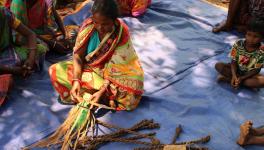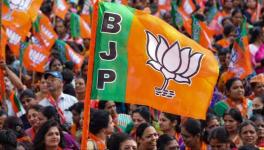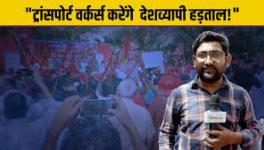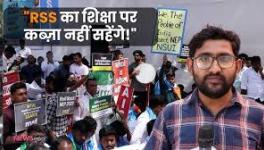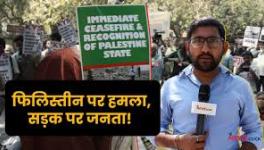Delhi Villagers Oppose Demolition of 2 Temples, Allege Ulterior Motives
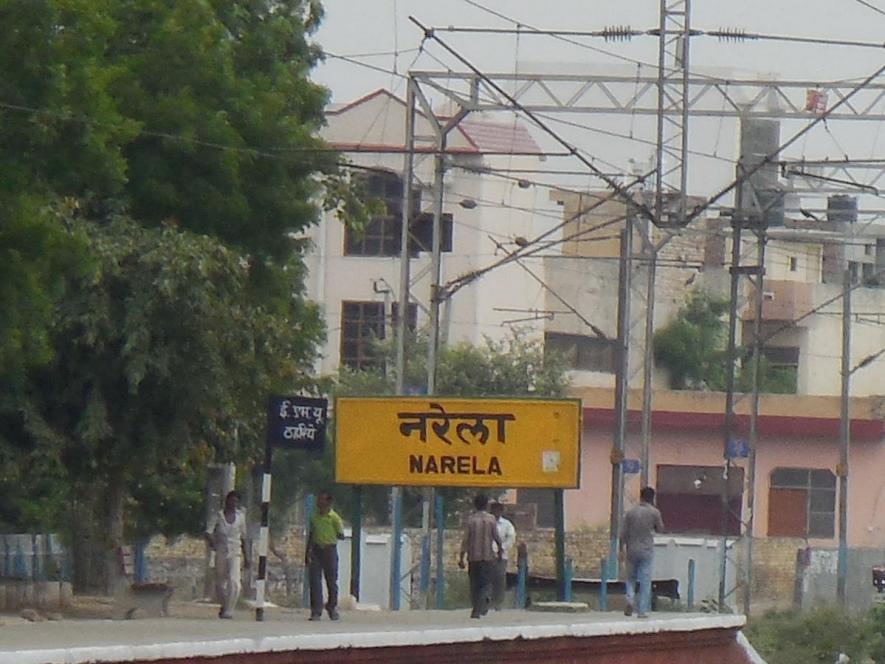
Image for representational purpose. Credit: India Rail Info
New Delhi: Around midnight on June 19, scores of police and paramilitary personnel arrived at Narela’s Bajitpur Thakran village to demolish two temples constructed by the villagers to free the nine acres for constructing a civil defence training centre.
Angry villagers immediately arrived at the temples and prevented the police from demolishing the temples.
One temple belongs to the villagers’ kuladevata (clan deity) and the other to Lord Krishna. In the early 1900s, their ancestors built a shrine for their clan deity that was developed into a temple.
“Around 500-600 people, including women and children, arrived there. We stayed there for hours and told the personnel that we would not allow them to snatch our land,” Ashish Thakran, son of a sarpanch who had fought for the land, told NewsClick.
Whenever villages are declared urban, land meant for public utility is given to the Delhi Development Authority. However, the story of these nine acres dates back to the 1990s when the village was not declared urban.
The panchayat and the government had agreed to construct a sports stadium on the land that would be helpful for the future generations of the village and nearby areas.
NewsClick accessed a June 16, 2003, letter written by then-sarpanch Sarpanch Baljit to the Delhi government showing an agreement on constructing a sports stadium in the area. As per the letter, a wall was also constructed around the nine acres and the government had formed a Board regarding the construction. But another site was selected for unknown reasons.
The land, right beside the main road leading up to bordering Haryana, is between the connecting villages of Nangal Thakran and Bhawana. Hence, the government has been eager to acquire the land. When adjacent land parcels were acquired, the villagers didn’t object, but they opposed the acquisition of these nine acres since it was selected for constructing a stadium.
Another letter preserved by the villagers shows that the Irrigation and Flood Control (I&FC) Department had proposed to build washrooms, a hall and a jogging track and submitted to the project director of rural development, Delhi, in October 2002. However, this proposal was rejected, saying that the village did not need them anymore, as stated in the letter, directed to the the-chief minister of Delhi.
In 2006, the land was back in focus with the I&FC Department saying that it could be used for educational purposes. According to the letter, the I&FC Department suggested that the land could be used to build an industrial training institute or a polytechnic college to benefit future generations and the village. The department recommended immediate action or else the land was likely to be encroached on by someone.
“The Central and the Delhi governments are fighting over who could develop the area. The truth is that they all want to use the land for their benefit,” alleged Ashish.
“Our village lacks basic amenities, like a hospital or a good government school. Families don’t have sufficient resources for kids who want to prepare for defence services and make the country proud. But the government wants to use the land for everything but what the villagers need right now,” he added.
The villagers alleged that the government had already earmarked 20 acres for building the civil defence training centre while trying to acquire the nine acres.
Since June 19, the villagers hold regular meetings and have formed a committee which will prepare a proposal and send it to the government to use the land only for the village’s welfare.
In 2011, the Supreme Court in Jagpal Singh vs the State of Punjab took cognisance of the issue of common village lands and gave a judgment that has been completely ignored.
As per the order: “Ordinarily, compounding in such cases should only be allowed where the land has been leased to landless labourers or members of Scheduled Castes/Scheduled Tribes, or the land is actually being used for a public purpose of the village e.g. running a school for the villagers, or a dispensary for them.”
The court noted that state governments in many cases, issued orders “permitting allotment of Gram Sabha land to private persons and commercial enterprises on payment of some money. In our opinion, all such government orders are illegal and should be ignored”.
Get the latest reports & analysis with people's perspective on Protests, movements & deep analytical videos, discussions of the current affairs in your Telegram app. Subscribe to NewsClick's Telegram channel & get Real-Time updates on stories, as they get published on our website.















